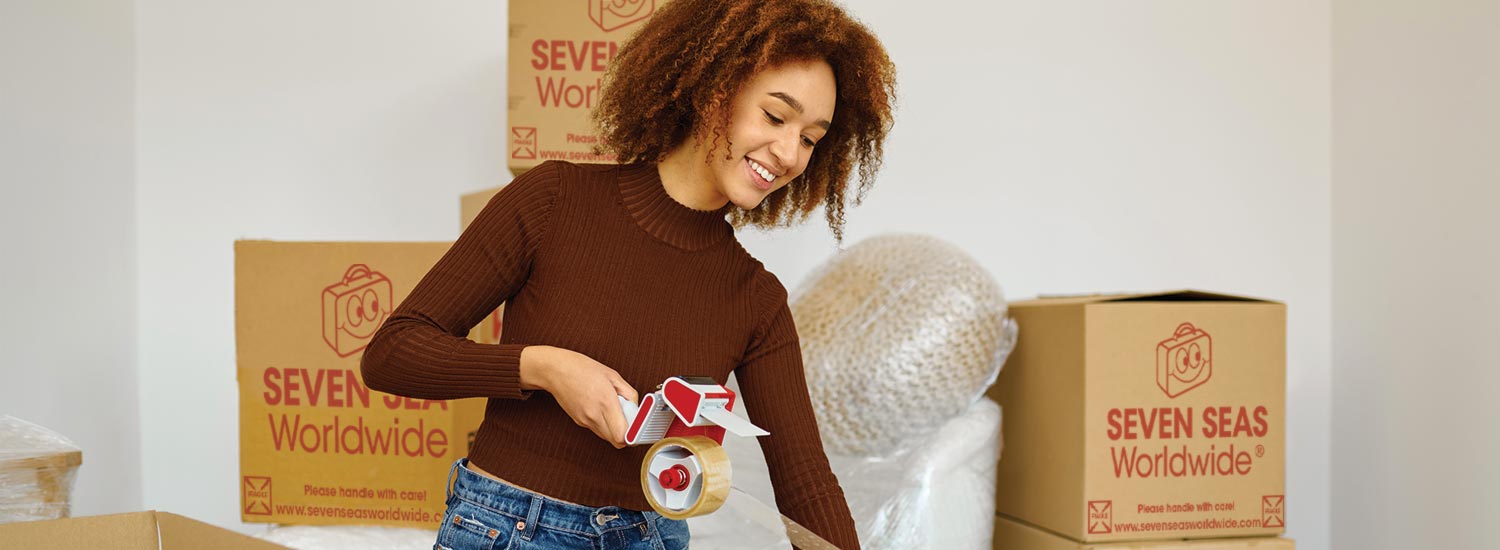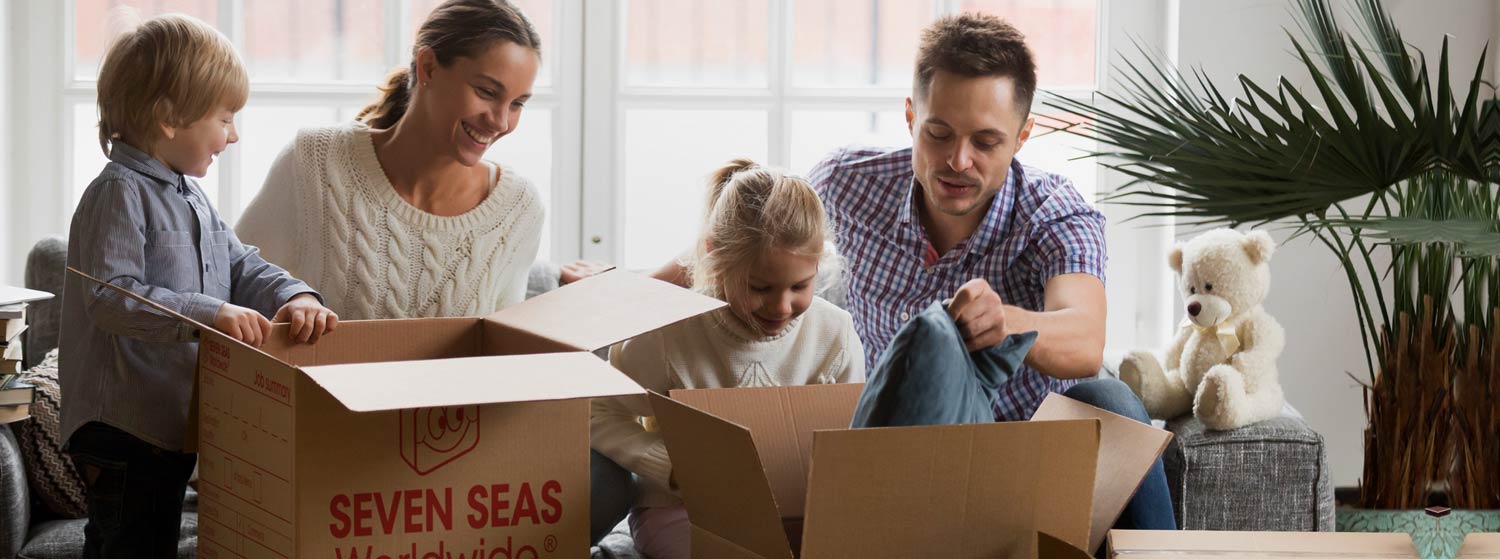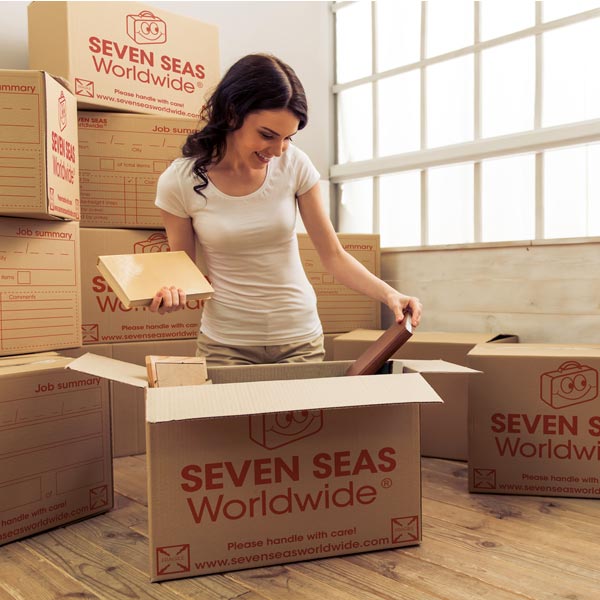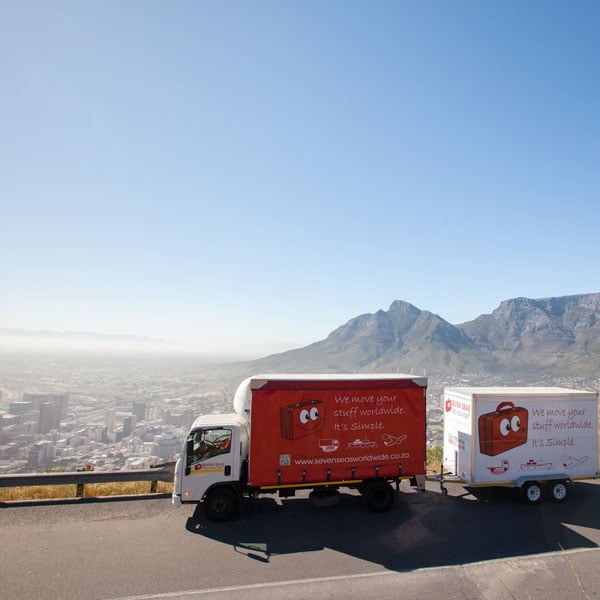Before packing, check this list of items prohibited from entering a particular country or region.
Quick links
Decluttering tips | Deciding what to keep | 20/20 rule | 90/90 rule | 12/12/12 rule | 5-year rule | Disposing of items | Get a free quote
Why is decluttering important?
One of the biggest things to consider before moving to another country is how to transport a house full of belongings. It's easy to gather possessions over the years, most of which we don't use! In the UK alone, it's estimated that more than two billion unwanted items take up space in our homes, with a staggering value of £32.7 billion (source: British Heart Foundation).
Decluttering is essential. Selling those excess goods could help fund your big move. And, after all, the fewer things you ship, the cheaper it will be. Luckily, our international removals company has you covered. We've been helping people relocate worldwide for over 25 years. You'll feel supported from when you get a free quote to the day we deliver your home contents to your new overseas residence.
In this blog, we'll look at the most efficient and affordable ways to declutter for an overseas move, including the planning stage, 20/20 rule, 90/90 rule, 12/12/12 rule, 5 years rule, what to do with your spare items and more.
Over two billion unwanted items take up space in UK homes...
...with a value of:
£32.7 billion
Source: British Heart Foundation
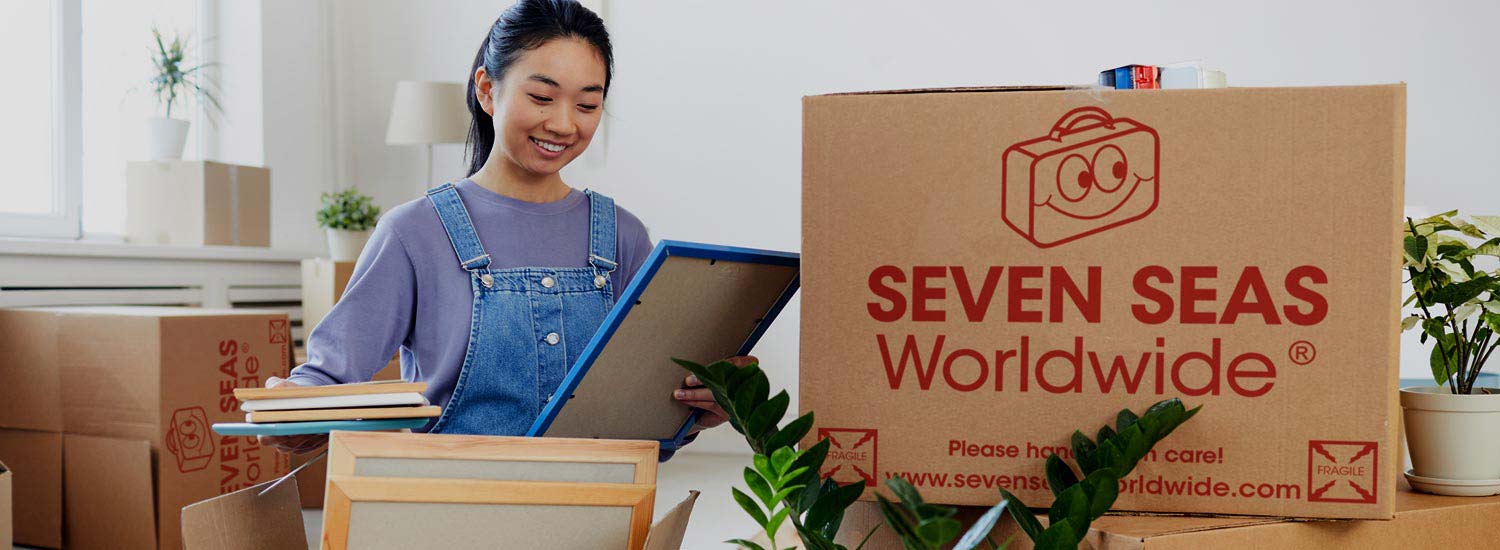
Our decluttering checklist for relocating abroad
By getting rid of things before moving, you can avoid feeling weighed down by unnecessary junk. Drawing on more than 25 years of worldwide moving and shipping experience, we've put together our best decluttering advice:
1. Make a solid plan:
Moving to another country is a significant life change for you and your family. Think of it as an opportunity to start afresh and simplify your life. Before deciding on a decluttering tactic, it's essential to prepare for what's ahead by listing the tasks you need to complete.
2. Start as early as possible:
It's easy to underestimate how long it takes to pack your belongings for removal. So, begin the decluttering process as soon as possible, as there are lots of decisions to make!
Top tip: tackling the smallest room in your home before moving on to bigger spaces will give you a greater sense of accomplishment.
Sort through every cupboard and drawer, even that old biscuit tin hidden in your loft or basement, arranging items into piles to be wasted, recycled or sold.
Work in brief periods to avoid burnout and rope in friends and family to make the process easier and more fun.
3. Create a detailed inventory:
From clothes pegs to Lego pieces, it's easy to lose track of exactly how much stuff we have.
Your removal company will request several shipping documents, including an inventory. The inventory is a detailed list of everything in your shipment and will be shown to customs officers during importation. Get a head start by writing down the items you have decluttered as you go from room to room.
You can write on paper, but we recommend typing your inventory electronically. Doing so means you can quickly transfer it to your Inventory Packing List later.
Your removal company will request several shipping documents, including an inventory. The inventory is a detailed list of everything in your shipment and will be shown to customs officers during importation.
| Items | Decision | Progress | Est. value |
| Desk (collapsible) | Ship | £50 | |
| PC | Ship | £500 | |
| Spare bed | Sell | ✓ | £100 |
| Spare mattress | Waste | ✓ | £0 |
| Broken hoover | Waste | £0 | |
| Books x 30 | Ship | £70 | |
| Box of kids' toys | Donate | ✓ | £100 |
Types of electrical plug sockets by country

Tick off each item as they are completed. Add a Decision column and fill in as you sort things by "Sell", "Donate", "Recycle", "Gift", or "Waste". Another column could be an estimated value to help you determine the resale value or future customs charges.
4. Be ruthless!:
It's hard to let go, especially items with sentimental value. But do you need three frying pans, eighteen pairs of shoes or your now grown-up kids' baby toys?
Moving abroad is the perfect time to downsize. Visualise how you want your new home to look. Does it include lots of unused junk? Probably not! Use this mental image of your future life as motivation.
Remember, a gift is a gift, not a burden. It's up to you to do with it as you please. Just because someone gave you a birthday present twenty years ago doesn't mean you must keep it forever.
5. Will your electronic goods work abroad?:
Research whether or not your electronic devices will work in your destination country. Some items, such as game consoles or beard trimmers, may require different voltages or plug sizes.
For example, the voltage in the EU and UK is 240V, whilst in Australia, it's 200-240V and 110V in the USA. There is also the risk of invalidating their warranty by using them in an unlisted country.
Consider replacing them, buying plug adapters, or leaving them behind. Remember that for your safety, plug adaptors are not designed for long-term use and should be unplugged after a couple of hours.
6. Be aware of prohibited items:
Each country has a list of items banned from importation to protect its people and the environment. Avoid quarantine delays and fines by referencing our Prohibited Goods page before packing.

Deciding what to keep when decluttering
Either visit or thoroughly research your new country to understand its climate, culture, living conditions and customs rules. Doing so helps determine which clothing and household goods are necessary in your new environment.
For example, if you're moving from Manchester to Seville, there is likely little need for warm winter clothing. Take this as an opportunity to say goodbye to goods such as wellies, thick coats, hot water bottles, electric blankets, etc.
Only keep possessions you use often and will use again. Consider the difference in size and layout between your current and new home. Large items like furniture may not fit or be practical. Plus, selling and replacing them in your new country could be more cost-effective.
What is the 20/20 rule for decluttering?
Let go of what you don't use or need for a more organised and clutter-free home.
The 20/20 rule is a simple and effective guideline to help you make swift decisions when decluttering your home before a big move abroad. The rule is as follows: if you can replace it in under 20 minutes for less than £20, consider getting rid of it.
In other words, don't hold onto replaceable or inexpensive things — let go of what you don't use or need for a more organised and clutter-free home.
It can be easy to amass many tempting and affordable little items. But, we often don't use them again or use them rarely. In the end, they simply add to our ever-growing bulk!

What is the 90/90 rule for decluttering?

Do you have belongings you last saw or touched a long, long time ago? Perhaps even years or decades?
The 90/90 decluttering rule suggests if you haven't used something in the last 90 days and don't think you'll use it in the coming 90 days, it's not worth keeping.
It encourages us to evaluate the necessity of what's taking up valuable space in our home and its likely usefulness in the future.
Remember that the 90/90 rule is a guideline and not set in stone. There are always exceptions like seasonal items, such as Christmas and Halloween decorations or kids swimming pools. Plus, sentimental things like photo albums, wedding dresses, family heirlooms, etc.
What is the 12/12/12 rule for decluttering?
The 12/12/12 method involves identifying and sorting a dozen items to waste, donate, and relocate in your home. Here's how it works:
- Throw away 12 items: identify and then get rid of 12 things you no longer need, use, or want. Such items are typically broken, outdated, or take up too much space.
- Donate 12 items: choose 12 items that are still in good condition but are no longer helpful, such as hobby equipment you stopped using a long time ago. Take these goods to your local charity shop or give them to friends or family.
- Return 12 items: find 12 lost things and return them to their proper location in your home, ready for you to pack for shipping. Typical examples include misplaced books, shoes, clothes, toys, etc.
The 12/12/12 rule is a structured yet fun approach to decluttering. The aim is to make it feel more manageable and less overwhelming.
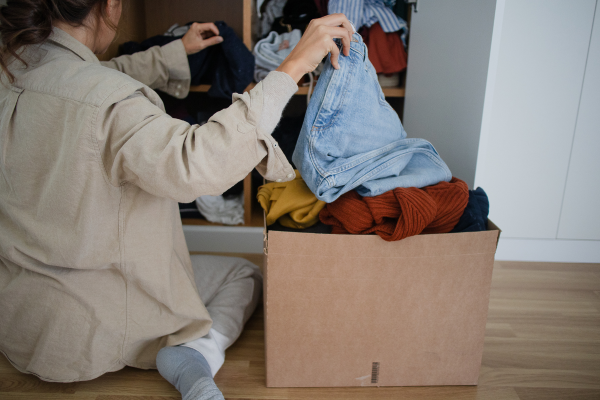
What is the 5-year rule for decluttering?
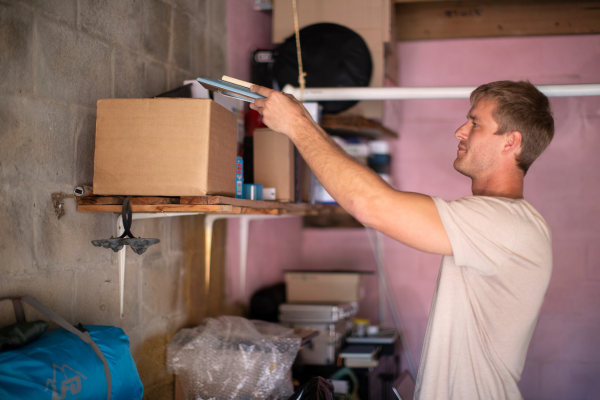
Our tastes change as we grow and pursue new paths in life. So, it makes sense to leave particular possessions behind. It makes less sense to allow them to clutter our homes!
Otherwise known as the 5x5 rule, the 5-year rule suggests that if you haven't used something in the past five years, don't spend more than 5 minutes thinking about it.
Such advice encourages us to assess the value and relevance of our belongings based on an extended period of non-use.
It can help us move on quicker and applies to various items like clothing, gadgets, sports equipment and electronic devices.
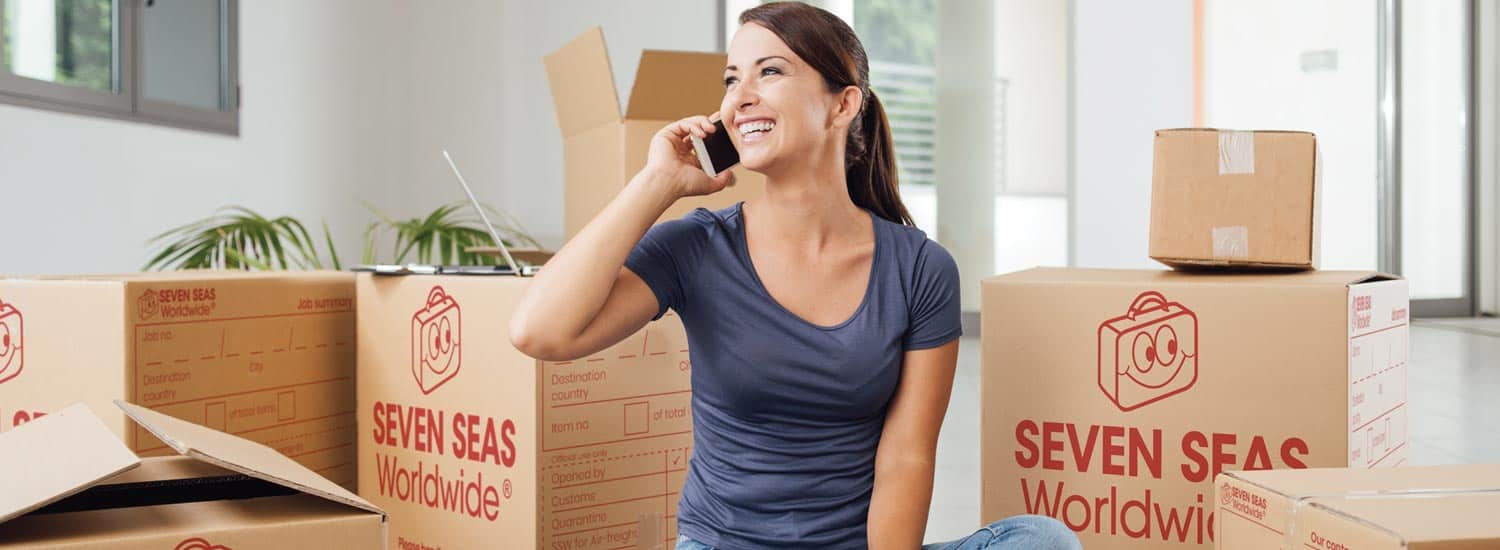
3 ways to dispose of excess items
While decluttering is a satisfying first step towards organising your big move abroad, the next challenge is getting rid of the stuff you no longer want or need. Here are three ways to responsibly dispose of unwanted items:

Sell valuable goods:
A good option to make quick cash is a car boot sale. Although, you're likely to make more money selling goods online via websites like eBay and Facebook Marketplace. Remember to take quality pictures for your listing and detail any defects to add trust.
Before listing, work out the going rate for items on eBay by searching for their names, then sort the results by "sold items" to find an appropriate price.

Donate to a charity:
Charity shops are a great place to take unwanted goods. But before donating, ensure everything is clean, stain-free, and working. Popular items to donate include toys, clothing, books, DVDs, prams and kitchenware.
In the UK, many organisations participate in the Gift Aid scheme, which allows charities to claim back 25p from the government for every £1 donated.

Recycle broken items:
Check your local recycling centre to make a booking and understand which materials they'll accept. If your items are large, you may need to book a home collection. Separate items into categories, such as plastic, glass, paper, cardboard, and metal.
Be cautious with electronics, as they contain hazardous materials. Take them to e-waste collection points or contact your local authority.
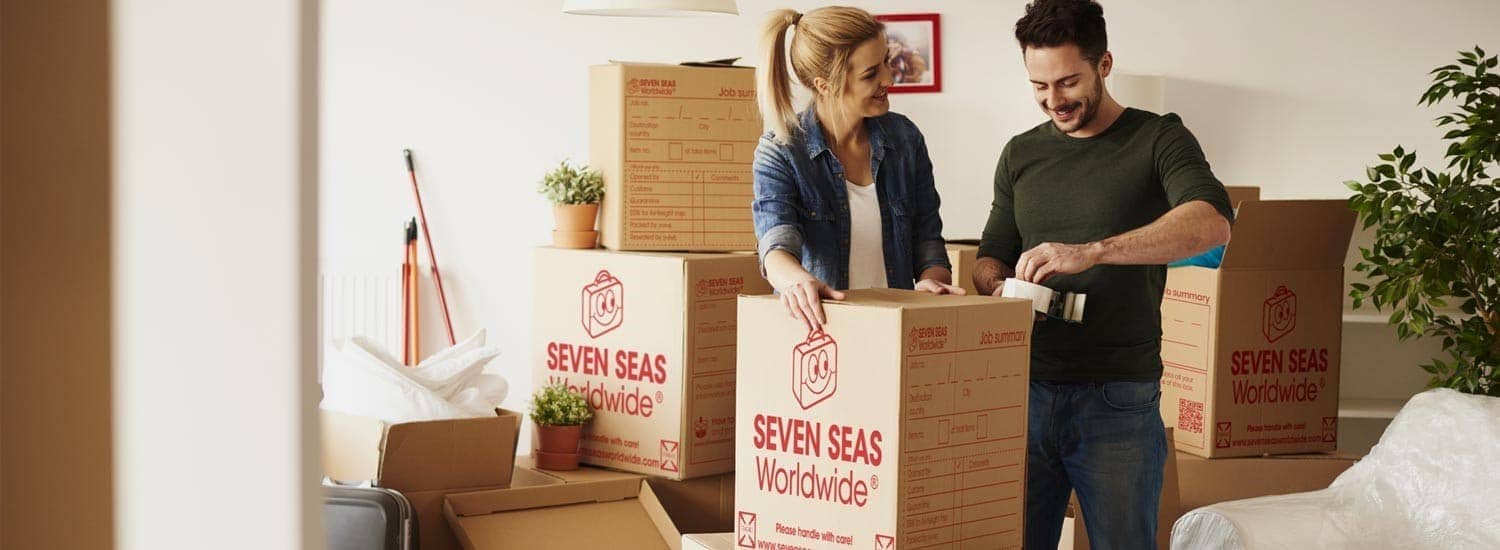
Book an overseas removalist
Once you've decided which furniture and household items to ship, it's time to book an international moving company. Our worldwide movers have been helping families relocate for over 25 years. Thanks to our expert team, customs knowledge and 24/7 multilingual customer service, you'll feel supported at every step. All you need to do is grab an instant free quote, place a booking, prepare your belongings and fill in your online documents.
The MoveCube® is our unique moving pod designed to protect your household goods during long journeys via road and sea. Think of it as your own shipping container you can load with everything from sofas and dining tables to kitchen appliances and bicycles. We'll bring as many MoveCubes® as needed to your door to be loaded by you.
Please note: if you are ordering more than one MoveCube®, they may arrive on separate days. However, in some countries, including the USA and Canada, it's one MoveCube® per day. If a country with a more extensive fleet like the UK, we can make two visits on the same day, totalling 4 MoveCubes® maximum.
